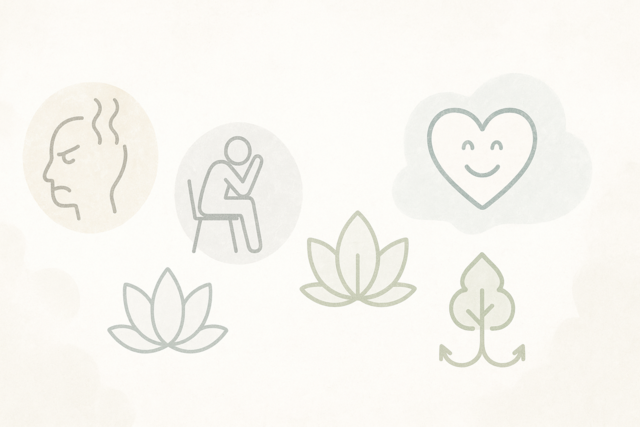Being sleep deprived and pumping ourselves full of caffeine can certainly have an effect on the mind, but how does a lack of sleep affect our ability to focus clearly? Some may argue that if you are not well rested, your mind is not as sharp and things can be a bit muddy. But does sleep really enhance our thought processes and function?
Physical Effects of Sleep Deprivation
- Shakiness
- Visual problems
- Headaches
- Increased appetite
- Drop in body temperature
- A decrease in immune system responsiveness
Psychological Effects of Sleep Deprivation
- Poor concentration
- Irritability
- Aggression
- Apathy
- Paranoia
- Sleepiness
On the other hand, if we sleep well and are well rested, we seem to be more alert and focused. One of the most obvious reasons our bodies need sleep is to conserve energy. A conservation of energy can mean more brain cells.
Here is a list of foods that help you sleep:
- chicken
- dairy
- hazelnuts
- hummus
- lentils
- meat
- peanuts
- rice
- soy
- seafood
- sesame
- sunflower seeds
- whole grains
Procrastination can be dubbed as a major concentration inhibitor; it is a type of behavior characterized by deferment of actions or tasks to a later time. We put things off, because we have other more important things to do, and suddenly we are scrambling for time. Procrastinating is simply non-productive, and working on tasks that have been put off can sometimes lead to a less-than-perfect result. For example, you put off going to the grocery store for days -- now today is the day when you are having company over for dinner. You have undoubtedly forgotten something on your list, like bread, wine, napkins, or that special seasoning for your dip. Ultimately, you stress out and lose sight of the fun and enjoyment of having your dinner party. Hastily working through a project can often lead to mistakes and solid focus and concentration is near impossible. In another example, procrastination of housework or another type of similar project, can lead to an overwhelming mess of stress, that is certain to take much longer to accomplish, with headaches along the way.
Stress is another common reason we can find it hard to concentrate. Stress is a part of life, and therefore we have to work around it to get the most out of our minds. The cause of stress is typically associated with work, school, family, relationships, and financial woes. While stress undoubtedly plays a role in our lives, we do not have to allow it to be the leading actor/actress. It is clearly a matter of choice on how we choose to deal with stress and stressful situations. Stress is your body's reaction to what is happening around you -- and while we cannot eliminate stress, we can manage it effectively. While there are an immense number of ways that stress can come into our lives, here is a list of the most common: death of a spouse or loved one, divorce, marital separation, personal illness or injury, marriage, pregnancy, and retirement. These particular events have made the list of the top situations that can induce a stress-filled environment. Not only can stress cause you an immediate reaction to these situations, but it can cause post traumatic stress disorder.
There are three common types of stress categories -- physical, nutritional, and emotional. Emotional stress is the stress we think about the most when we talk about stress. Stress and stress-related disorders are experienced by all on a regular, recurring basis. Nutritional stress can be described as a lack of certain nutrients the body needs, and therefore reacts. Physical stress can be tied to the physical symptoms that can take place when enduring the effects of other types of stress. There is no doubt that stress is a part of life. It is common, and there are ways to live happily, healthy, and smart by getting a handle on the things that stress you most.
Class discussion - Read the story below, do you think this stressful situation was handled appropriately?
Jane and her husband, Jim, have been married for nearly 15 years. They are fairly happy and both have good jobs, but Jane recently found out that Jim has been gambling away money unnecessarily. He is good about paying the bills, but instead of saving extra money for an emergency fund or savings account deposit, he frequently treats himself to a night of gambling. Jane decides to confront Jim and have it out with him. Instead, when we he comes, she sits quietly and does not say a word. A few days later without talking, and Jane blows up at Jim for something that is fairly minor in the wake of their real issues. He is clueless, and she is simply enraged.
Class discussion - Read the story below, do you think this procrastination situation could have been avoided? If so how, and what would you have done differently.
Mary is a married and working mother of a teenage son. Her job keeps her very busy; her life, in general, is busy with her son's sports, various family functions, helping friends, and trying to spend time with her husband. Recently, Mary's mother hurt herself in an accident. To add to Mary's hectic schedule, she now needs to go to her mother's at least twice a week to do laundry, dishes, and other light housekeeping. During this time, Mary comes home at about 5 p.m., gets a snack, and sits down to watch an hour of her favorite home decorating shows. Sometimes she will just take off to her favorite store to buy things she really does not need, and shop around.
Soon after, she begins dinner, takes the dog for a walk, finishes dinner, and proceeds to go on the computer to check email, etc. And finally, she begins to wash dishes and straighten up. But at this point in the evening, it is nearly 10 p.m. and Mary is exhausted. So a sink full of dishes, and many piles of laundry later, Mary's home is a wreck and has been for nearly three weeks. Her husband is annoyed, because he feels that Mary is neglecting the house, and her response is that there are simply not enough hours in the day.

























